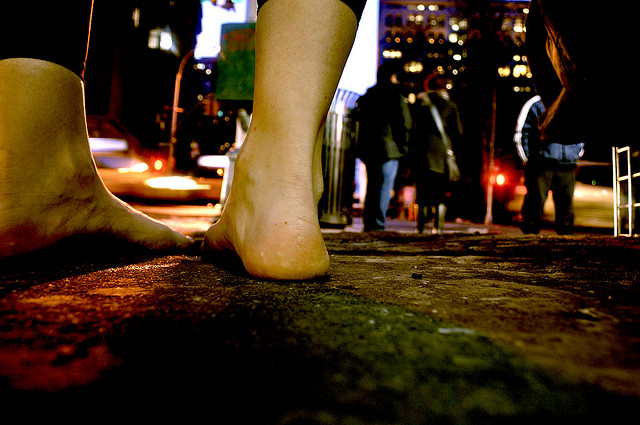The yellow streetlight makes the shadows darker. Suddenly, a quick figure darts out and grabs a young woman, smothering her scream with one hand as he grabs her purse with the other. A group of people nearby witness the incident.
What do you do? Call 911? Rush to the woman’s aid? Chase down the shadowy character? Surely, you would do something about it.
Why, then, do countless victims go without help every day? A man dies on the side of the road while busy people walk by. A woman gets mugged, or worse, raped, and everybody assumes someone else must be calling the police.
In far too many cases, thinking that someone else will take care of the problem produces a situation in which nobody takes care of the problem. It’s called the bystander effect.
This is a social phenomenon in which people do not offer help to a victim when others are present. The greater the number of bystanders, the less likely it is that any one person will help.
If you were the only person on the street that night witnessing that crime, you would probably feel a greater sense of obligation to do the right thing. But because other witnesses were present, there’s a chance that you — a morally focused, upstanding citizen — would have done nothing.
Diffusion of Help
The story above is terrifying, but we face many equally daunting challenges in our world today: climate change, war, famine, globalization, and pandemics. These challenges can overwhelm and paralyze us, or they can invigorate us. On the other hand, these issues don’t seem to deeply concern enough people. Perhaps they don’t notice the problems, see them as emergencies, or feel a sense of responsibility. Maybe they feel unable to help and decide not to intervene.
They do nothing because someone else will — or might — act instead. This is called the diffusion of help: We diffuse responsibility and defer to more skilled and trained individuals. We hear, “The government will figure something out,” or “Scientists are working on that problem.”
This diffusion of help means we have no obligation to help.
However, most of us aren’t do-nothings. Entrepreneurs, especially, are anything but a group of lazy individuals. Entrepreneurs pride themselves on solving problems, disrupting industries, and challenging the status quo. With this unique mindset, you could stop diffusing help and take responsibility for some of the biggest challenges of our generation.
Fight the Bystander Effect
A friend and former entrepreneur, who now works with the government to stimulate economic growth, talks about a new definition of “MVP” — minimum valuable product. He recommends young entrepreneurs combat the deadly bystander effect in steps:
- List all the problems faced by society today.
- Prioritize those problems.
- Decide where and how to intervene.
Modern entrepreneurs are already making a difference with the emergence of social entrepreneurship. These enterprises put social gain ahead of profit, leaving their founders to do the right thing without worrying about lawsuits from profit-maximizing shareholders. They look for disruptive solutions to combat existing problems.
A great example of this can be found with the company Embrace. A group of Stanford students aimed to replace the expensive and technical machinery required to keep newborn babies warm with a $100 alternative. The Embrace infant warmer, a sleeping bag with thermal pads heated with hot water, hopes to help reduce the rate of neonatal deaths in India and other developing nations, where incubators are scarce. This social enterprise meets a real need across the world.
Another successful social entrepreneur is Fabio Scaldaferri, CEO and co-founder of MattressRecycling.ca in Vancouver. The company recycles 95 percent of the materials in mattresses, which usually end up in landfills, and it has affected recycling across western Canada. MattressRecycling.ca solves a need while also making a profit.
Many people feel that the problems are just too big or they don’t have any expertise in economics, trade, or health. But every day, an entrepreneur creates a successful company in an industry that didn’t exist even two years ago. This type of entrepreneurial thinking — and action — needs to be applied to some of the biggest challenges faced by society. You know the ones — the ones we mistakenly think “they,” people other than us, are going to solve.
Stephan Wiedner creates kick-ass accountability systems for solopreneurs. He is also the founder of Noomii.com, the largest directory of independent life and business coaches, and the editor of the Un-Self-Help Blog, a popular resource for research-based self-help that works. Connect with Stephan on Twitter and Google+.
Image credit: CC by Alyssa L. Miller



